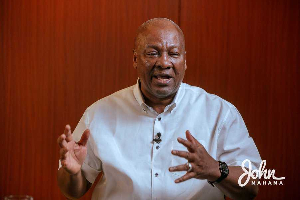Banks and other financial institutions that have long serving chief executives, board chairmen or non-executive directors have until the end of this week to defend why they should not compulsorily leave their positions early next year.
Transitional directives issued by the Bank of Ghana, BoG, last week stipulated that from the end of this year, no managing director of a bank can serve for more than three terms of four years each, totaling 12 years.
Similarly, no board chairman can henceforth serve for more than two terms of three years each totaling six years in all. In the same vein, no non-executive director can serve for more than three terms of three years each, making for a maximum tenor of nine years.
Those who have served longer than these stipulated maximum tenors, by end of 2018, are to consequently step down.
While these are all part of the corporate governance directives announced by the central bank in April this year, no specific timelines for implementation were placed on the directives relating to the tenors of key bank chieftains, thus raising doubts as to BoG’s commitment to go through with these plans.
However, the latest transitional directives have established specific timelines and they are imminent. For all three aforementioned key positions, the time limitation on their tenors in office takes effect from December 31 this year.
However, the directive leaves open a window of possibility for an extension of tenor of office when it says that where the managing director of a bank or other regulated financial institution came into that office with a fixed tenor of contract, that contract should be allowed to run its course.
But if the contract exceeds 12 years, it cannot be renewed upon its expiration.
The corporate governance directives being implemented by the BoG aims at ensuring that financial institutions under its regulatory purview practice good corporate governance, especially with regards to top risk management.
Poor practices in these regards have been identified by the central bank as the primary cause of the technical insolvency that have led to the revocation of the licenses of seven indigenous universal banks over the past 13 months.
Indeed, some other banks and several other types of deposit taking financial institutions are also believed to be in dire financial straits, again as a result of poor corporate governance.
The directives announced in April cover several aspects of financial institutions’ activities including: business strategy; board composition and members qualifications; board size and structure; directors’ independence; separation of powers; other engagements of board members; and board sub-committees.
The new directives concerning tenor of office have raised some debate and have brought the continued stay in office of some of the longest serving and most accomplished managing directors into question.
Most notable are the cases of Frank Adu Jnr, who has been MD/CEO at CAL Bank for well over the new 12-year limit and Alhassan Andani who was appointed to the position of MD/CEO of Stanbic Bank 12 years ago.
However, it is being argued that Andani is on secondment from Stanbic’s parent bank, Standard Bank of South Africa and that makes his case not so clear cut.
While such instances among other genres of financial institutions are not so much in the public glare as those of the banks, there will be far more incidences of required changes.
Many of financial institutions are majority owner managed, and have been so since they were established in the first place. Now they face the prospect of handing over the reins of their respective companies to people other than themselves.
Business News of Monday, 10 September 2018
Source: goldstreetbusiness.com

















